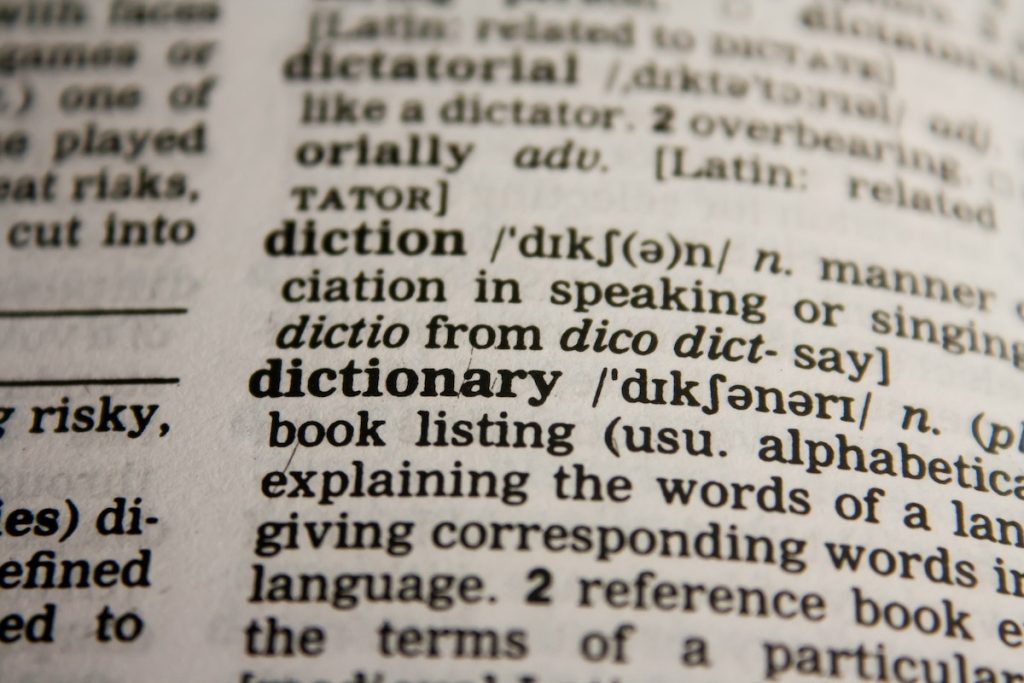If you want to be a writer or really like writing, it’s important to know that vocabulary in creative writing is very important – as it can help you be the best writer you can be.
Creative writing is the way for people to express themselves and share their imaginative stories with others. It doesn’t follow regular writing rules, so it allows writers to create stories, poems, and essays that deeply connect with the readers’ emotions. When you are writing in a creative approach, it is very important to have a large and strong set of words that you know and understand well. This allows you to express your thoughts clearly, create strong mental pictures, and provoke feelings in your readers’ mind.
With Vocavive App, we have been helping students learn and master a strong collection of important English vocabulary. Having this kind of collection of a wide range of words helps writers express their ideas clearly and genuinely, making their creative ideas come alive on paper.
In this article, we will further discuss the words that can greatly help you to create a well-crafted story. We will give you helpful advice and tips to improve your writing skills – which includes choosing the right words, avoiding using the same words too much, and using good transitions.
Let’s get started?
Exploring the Significance of Vocabulary in Creative Writing
Creative writing is incredibly important because it lets us express ourselves and connect with others. It allows us to unleash our imagination, share personal stories, and evoke emotions in readers. The best kind of Creative writings have a great storytelling. They are full of rich expressions that take the reader through a journey.
Now, when it comes to writing effectively, having a good vocabulary is vital. Why?

A wide range of words helps us to convey our thoughts, emotions, and visuals in the best possible way. The work gets easier for the writer. But is it only that?
It also enables us to create vivid imagery in readers’ minds, develop intriguing characters, and construct realistic worlds. Numerous research studies have demonstrated this link between a strong vocabulary and writing proficiency. Research conducted by the Educational Testing Service (ETS) reveals that a larger vocabulary enhances the quality and complexity of writing. When we know and use a variety of words, our writing becomes more creative, clear, and profound.
Another study published in the Journal of Educational Psychology found that students with an extensive vocabulary tend to produce more engaging and captivating stories.
Overused Words That Will Make Your Writing Sound Weak
Using a variety of words is important when writing creatively. However, we should try not to use words and phrases which have been used too much in creative writing. We might use those words thinking it will improve the richness, when in fact, it can do the opposite. Those commonly used and overused words can make our writing sound boring and unoriginal.
Let’s look at a list of commonly used words that we should be careful not to use too much.
- Awesome – The word “awesome” is used too much and doesn’t give enough details to describe something impressive or remarkable.
- Beautiful – A word that is often used without giving any specific details or personal viewpoints.
- Brilliant – The word “brilliant” is often used to say something is really good or smart, but it might sound overused.
- Cool – An informal word that many people use a lot, but it doesn’t give a clear meaning anymore.
- Cute – Often used to describe something charming or appealing, but it can be used too much and become unoriginal.
- Different – Different is a word that is commonly used to describe something but doesn’t give much information or understanding about it.
- Simple – Simple things are repeated too much and don’t have much meaning, so they don’t show all the details or difficulties involved.
- Great – A word that is often used but it doesn’t provide many details and can be unoriginal.
- Nice – A word that is used too much and doesn’t have enough clear details to describe something well.
- Really – Often used as a word that doesn’t have much meaning and doesn’t make things clearer or more important.
- Amazing – Often used without giving details or showing the real specialness of something.
- Surprising – Used too much and doesn’t have a strong effect because people use it to describe things that happen or experiences that they have frequently.
- Breathtaking – It has been used so much that it lost some of its power and impact.
- Difficult – Often used without giving specific details or explanations about the difficulties being talked about.
- Compelling – Means when something is persuasive or captivating, but it is often used too much and lacks originality.
- Important – Often used to highlight significance without giving different viewpoints or specific details.
- Dramatic – Often used to describe something intense or powerful, but can be unoriginal.
- Effective – Effective is a word we use a lot but it doesn’t tell us much and doesn’t give us any new or special information about what we’re talking about.
- Encouraging – Means giving support or motivation, but it is often used without giving examples or details to explain why it is encouraging.
- Exciting – A word that people use too much, and it’s not very specific in describing the real nature or specialness of an exciting experience or event.
- Fabulous – Frequently used to describe something exceptional or marvelous, but its frequent usage has diminished its impact.
- Fantastic – Often employed as a generic term to convey excitement or positivity, but can lack specificity and originality.
- Fascinating – A common choice to describe something intriguing or captivating, but its frequent usage can make it sound clichéd.
- Fortunate – Frequently used without providing unique details or perspectives on the nature of the good fortune.
- Genius – Overused to describe exceptional intelligence or talent, but its frequent use can diminish its impact.
- Helpful – A commonly used term that lacks specificity, failing to convey the specific ways in which something or someone is helpful.
- Incredible – Often used generically to express disbelief or awe, but its frequent usage can dilute its impact.
- Inspiring – Frequently used to describe something that motivates or encourages, but can sound clichéd without offering specific examples.
- Interesting – A generic term used to convey engagement or curiosity, but its overuse can make it sound unoriginal.
- Magnificent – Frequently used to describe something grand or impressive, but its frequent usage can lessen its impact.
- Memorable – Often used without providing specific details or insights into what makes something truly memorable.
- Outstanding – A common descriptor for excellence, but its overuse can make it sound less impactful or unique.
- Powerful – Frequently used to convey strength or influence, but its frequent usage can make it lose some of its impact.
- Remarkable – Often used to describe something extraordinary or noteworthy, but its frequent usage can diminish its impact.
- Significant – A frequently used term to express importance or meaning, but its overuse can make it sound clichéd.
- Spectacular – Often used to describe something visually stunning or impressive, but its frequent usage can make it lose impact.
- Striking – Frequently used to describe something visually or emotionally impactful, but its overuse can diminish its effect.
- Substantial – A common term used to convey importance or size, but its overuse can make it sound generic or lacking in specificity.
- Successful – Often used without providing specific criteria or context for defining success.
- Surprising – Frequently used to convey unexpectedness, but its overuse can make it sound less impactful or genuine.
- Terrific – A commonly used term to express enthusiasm or positivity, but its frequent usage can make it sound clichéd.
- Unique – Often used to describe something one-of-a-kind or distinct, but its frequent usage can diminish its impact.
- Valuable – Frequently used to express worth or importance, but its overuse can make it sound less impactful or specific.
- Vivid – A commonly used term to describe something vibrant or intense, but its frequent usage can make it sound unoriginal.
- Wonderful – Often employed as a generic term to convey delight or positivity, but its frequent usage can diminish its impact.
- Worthwhile – Frequently used to express value or significance, but its overuse can make it sound less impactful or meaningful.
Use these 14 Types of Transition Vocabulary In Creative Writing
Effective transitions help connect ideas and make it easier for readers to follow along with the story or information. By using connecting words and phrases, writers often make their work easier to understand and flow better. Here are the Transition Words and Phrases you should keep in your volt.
Addition: again, also, besides, too, furthermore, moreover, in addition, first, second, third, next, lastly
Contrast: but, however, nevertheless, on the other hand, conversely, yet, although, even though, while, whereas
Comparison: similarly, likewise, in the same way, as, just as, than, like
Cause and Effect: because, therefore, thus, hence, as a result, consequently, so, for this reason, due to
Time: after, before, during, since, then, when, while, afterwards, next, finally, initially
Sequence: first, second, third, next, then, afterward, finally, to begin with, to start with
Emphasis: indeed, in fact, certainly, of course, truly, really, definitely, undoubtedly
Restatement: in other words, to put it another way, that is, as I said, in short
Clarification: to be more specific, to clarify, in other words, that is to say
Summarization: in summary, to sum up, all in all, in conclusion, to conclude
Example: for example, for instance, to illustrate, as an illustration, as shown
Concession: admittedly, it is true that, I agree that, I grant that, I will admit that
Refutation: however, on the contrary, yet, still, nevertheless, in spite of
Concluding Remarks: to conclude, in conclusion, in summary, to sum up, all in all
Question: How do I Use These Transition Words to Create a More Compelling Read?
To make your paragraphs flow better, it’s important to keep a few practical tips around you that connect your ideas smoothly. First, think carefully about how to move smoothly from one idea to another in your writing. Plan out the order that makes the most sense for your thoughts.
By doing this, you can find out where you need to use transition words and phrases to help readers understand how ideas are connected. Try out different connectors like “also,” “however,” or “likewise,” to keep your readers interested and add some variety to your writing.
Make sure to think about the situation and what you want to say when you write. Choose words that clearly show how your ideas connect to each other. It’s important to put transitions in the right places in sentences to make sure the writing flows smoothly and makes sense. You can put them at the start, in the middle, or at the end of sentences.
Vocabulary Gems to Dazzle Your Teacher in Essay Writing
As students, we often find ourselves striving to impress our teachers with well-crafted answer scripts. Beyond accurate content, an impressive essay demands the strategic use of vocabulary to showcase our language prowess and command over the subject matter. Let’s take a look at it with an example.
Before Using Vocabulary:
Imagine you are writing an essay about the American Revolution. In the fayirst scenario where there is no vocabulary, your essay may read like this –
“The American Revolution was a significant event in history. The colonists fought against British rule for their freedom.”
After Using Vocabulary:
Now, let’s see the same essay with an improved vocabulary usage –
“The American Revolution stands as a pivotal milestone in history, epitomizing the relentless spirit of the colonists who valiantly waged a battle for their emancipation from British dominion.”
Which one do you think has more richness?
See, the “after” scenario here elevates the description of the American Revolution by incorporating words like “pivotal milestone,” “relentless spirit,” and “valiantly waged a battle.”
Your classroom might have 20+ students. To stand out from the general crowd, you can use vocabulary like these. It not only demonstrates a more nuanced understanding of the said topic, but it also brilliantly captures the attention of the reader, including your teacher. She might feel more convinced to give you an A.

How to use specific words, descriptive language, and figurative language in creative writing
When describing emotions, shy away from simplistic and overused terms, such as “happy” or “sad”, or “very important”. Instead, try to opt for colorful alternatives that bring your characters’ feelings to life. For instance, rather than stating “The boy was happy,” say “The boy was grinning ear to ear, his eyes twinkling with excitement.” Such descriptions allow your readers to experience the joy alongside the character.
You also need to pay attention to employing descriptive language that adds depth and color to your writing. For example, replace mundane phrases like “The sky was blue” with a more captivating expression. It could be “The sky was a brilliant azure blue, stretching out like a vast ocean.” When you are using such rich language, your readers can feel as though they’re witnessing the scene firsthand.
Coming to figurative language, utilize similes, metaphors, and personification. This will leave a lasting impact on your audience who want to enjoy and feel connected to your story. For example, if you had to merely write an expression such as “The boy was strong” – you could very well say “The boy was as strong as an ox.” When this is done, the comparison to “an ox” not only conveys strength but also makes the description more memorable for the reader.
In Conclusion
In your journey as a budding writer, remember that mastering vocabulary in creative writing is not just a skill but a powerful tool for self-expression and captivating your readers. It is a skill that is essential for any writer, but it is especially important for creative writers. When you have a wide vocabulary, you have a wider range of tools to express yourself and bring your stories to life. You can use more precise language to describe your characters, settings, and events.
So don’t be afraid to experiment with new words. The more you use them, the more comfortable you will become with them, and the better your writing will be.


